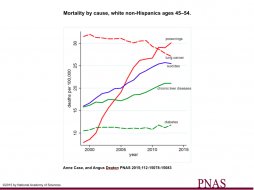Lumina releases draft "profile" of what students at various levels should know and be able to do, regardless of discipline; accreditors and private colleges to test it.
What should a college graduate know and be able to do? There are as many views on that as there are colleges (thousands), if not individual professors and students (many more).
The diversity of opinions about what a college education means has long been seen as a strength of American higher education. But in recent years, many employers and policy makers have argued that the lack of a common definition of what students should know and be able to do - and a dearth of adequate methods of gauging whether they know it and can do it - has contributed to a decline in the quality of higher education and to the awarding of more degrees, but of lesser value.
The push to set such standards at a national (and even federal) level has, in turn, led many college and faculty leaders to complain that a one-size-fits-all approach to defining student learning would result in greatly oversimplified definitions of learning.
To try to provide a shared understanding of what degrees mean - but without, its designers insist, turning that into a government or other mandate - the Lumina Foundation for Education is today releasing a draft of its Degree Qualifications Profile, created by four leading higher education researchers and policy experts (more on them later).
The profile, around which Lumina officials plan to begin a several-year discussion in which colleges, accreditors and other groups will test and refine it, is intended to establish, in more specific ways than has historically been the case, what the recipients of associate, bachelor's and master's degrees (regardless of discipline) should know and be able to do.
"There is no generally accepted understanding of what quality represents in American higher education, " says Jamie P. Merisotis, Lumina's president and chief executive officer. "Our view is that the absence of that shared understanding of what quality means has resulted in employers being dissatisfied with what higher education produces; policy makers being unsure of their investment; and students and families having a lack of clarity about choice of institutions and the relative value of their degrees."
The degree framework, he says, is designed to help develop that shared understanding across majors, programs and institutions. Paired with the foundation's other major student learning project, known as "tuning" - which focuses on what degree holders should know within specific disciplines - the qualifications profile could help create a common definition of what a college credential should represent, he said, so that better tools (portfolios, projects, and tests) can be developed to measure how well students are actually accumulating the requisite knowledge and skills.












